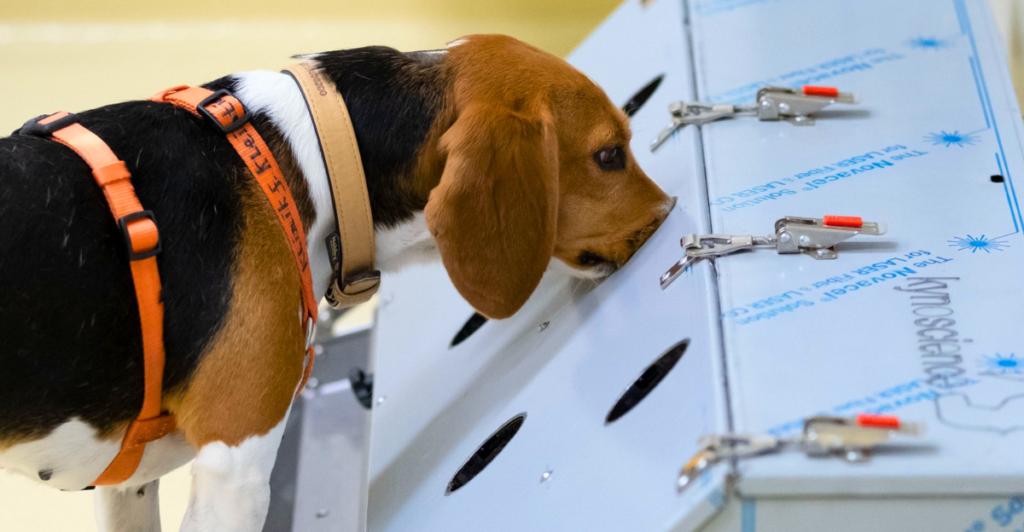
Dogs have an incredible sense of smell—up to 100,000 times more powerful than ours! But their sniffing skills aren’t just for finding treats. Whether it’s saving lives, protecting wildlife, or even sniffing out ancient artifacts, dogs are hard at work in ways you might not expect.
1. Historical Artifact Detection
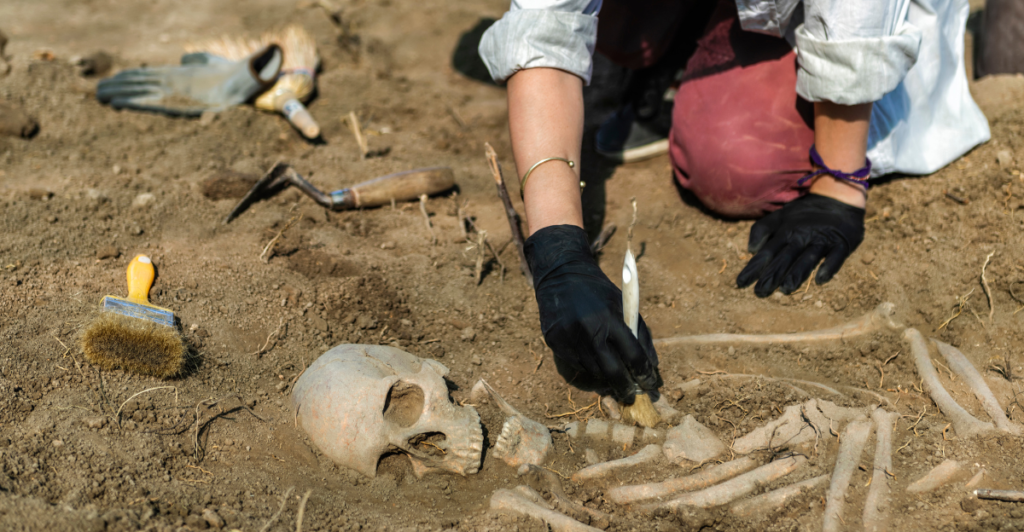
Archaeologists are using dogs to find hidden artifacts that have been buried for centuries. These dogs can detect the scent of old materials, helping to uncover lost items without disturbing the site. Their noses lead experts to discoveries like ancient bones and forgotten tools that might have stayed hidden forever. Who knew history could be found through smell?
2. Truffle Hunters
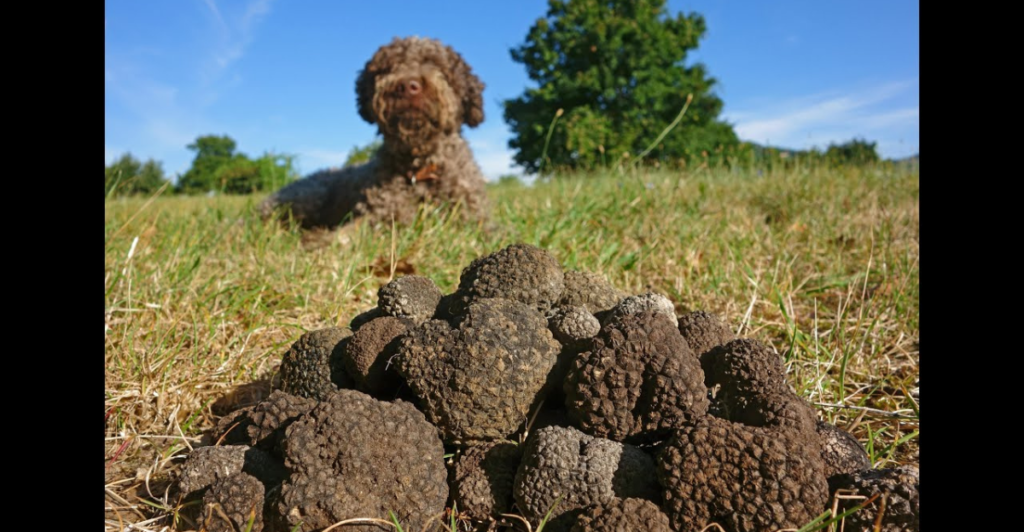
Some of the world’s most expensive delicacies are found—not by chefs, but by dogs! Truffle-hunting dogs track down these rare fungi buried beneath forest floors, using their powerful noses to locate the hidden treasures. Unlike pigs, dogs don’t eat the truffles, making them the perfect partners for this luxurious (and highly profitable) culinary quest.
3. Whale Poop Detection
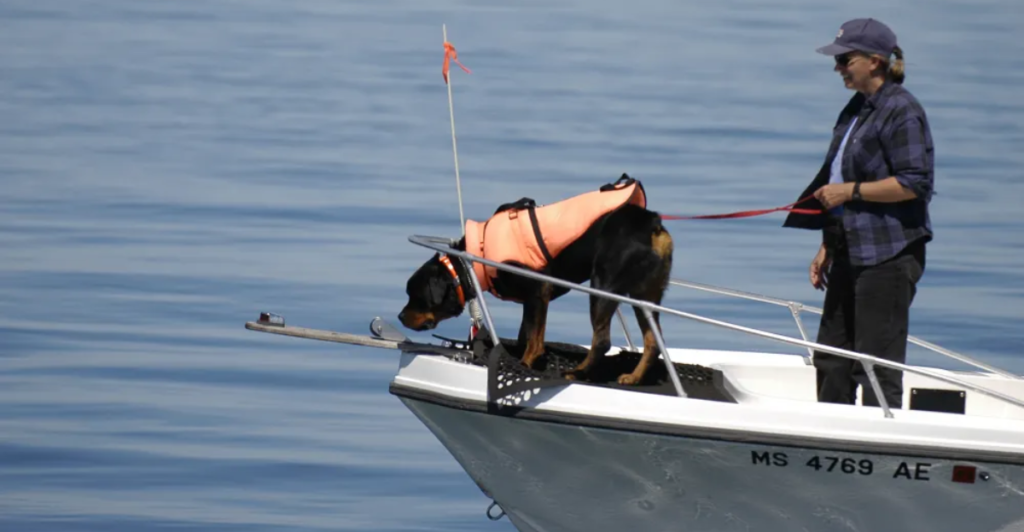
It sounds bizarre, but whale feces hold critical information about ocean health—and dogs are leading the search! Trained pups sniff out floating samples, helping researchers study everything from diet to pollution levels. Without them, scientists would struggle to track these elusive giants of the sea. Who knew dog noses could make such a difference in marine biology?
4. Cancer Detection

Some dogs have an amazing sense of smell that enables them to detect cancer in people even before doctors can. They notice small changes in breath, urine, or sweat. This helps doctors find diseases like lung and breast cancer early on. Scientists are still learning how dogs do this, but these helpful animals are already making a big difference in people’s lives.
5. Disaster Response Dogs
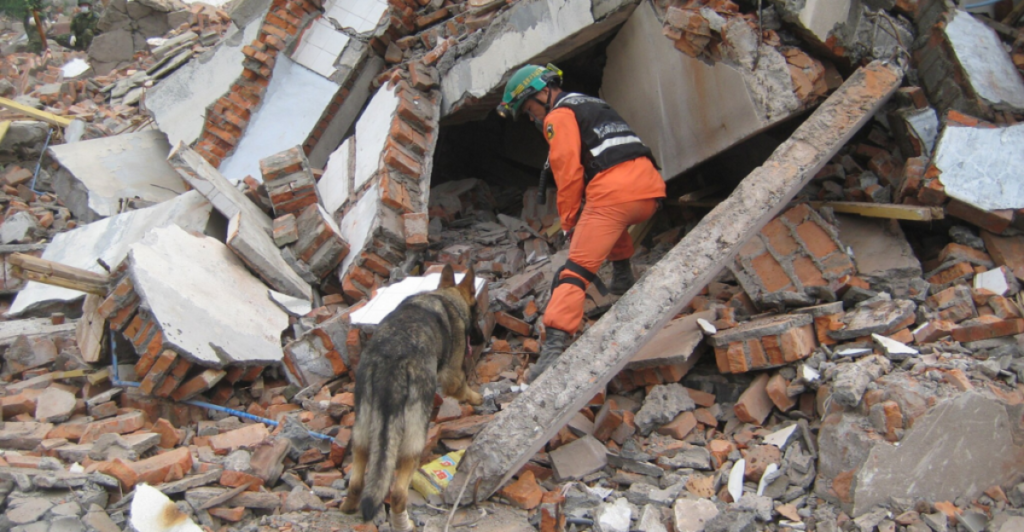
When disaster strikes, highly trained dogs race against time to locate survivors. Whether it’s an earthquake, landslide, or collapsed building, their noses can detect people trapped under debris, even when human rescuers can’t see or hear them. Their speed and precision mean the difference between life and death.
6. Bed Bug Sniffers
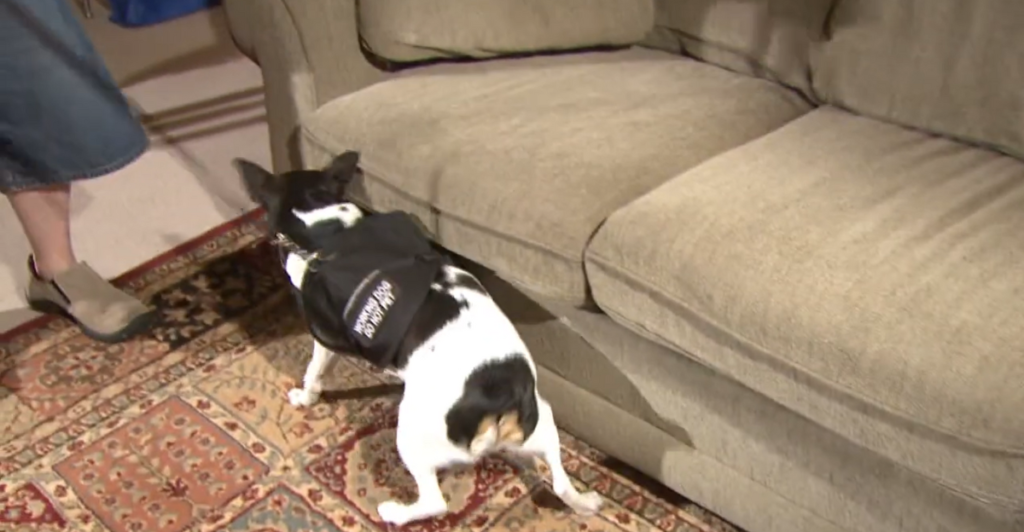
Hotels and homes dealing with bed bugs now have a new asisstance—dogs! These specially trained dogs can find infestations by using their sense of smell. They can detect even the smallest pests accurately. This makes them a valuable tool in pest control, as they help reduce the need for harmful chemicals and unnecessary extermination efforts.
7. Conservation Canines

Dogs play an important role in conservation efforts. They help track endangered species and find invasive ones. For example, dogs search for wolverines in the wild and detect zebra mussels that threaten waterways. Their strong sense of smell enables them to assist scientists in protecting fragile ecosystems. These furry helpers are making a significant impact on wildlife preservation.
8. Narcotics Detection
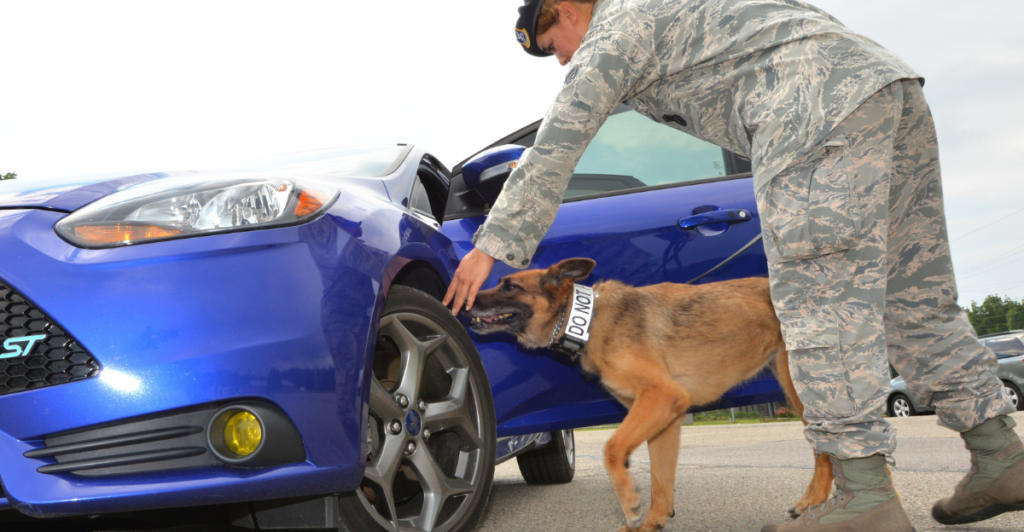
Law enforcement uses dogs to find hidden drugs. These dogs work at airports, border crossings, and crime scenes. They are highly trained and can detect illegal substances very precisely. Their ability to smell even the faintest scent makes them a key tool in fighting drug trafficking.
9. Explosives Detection
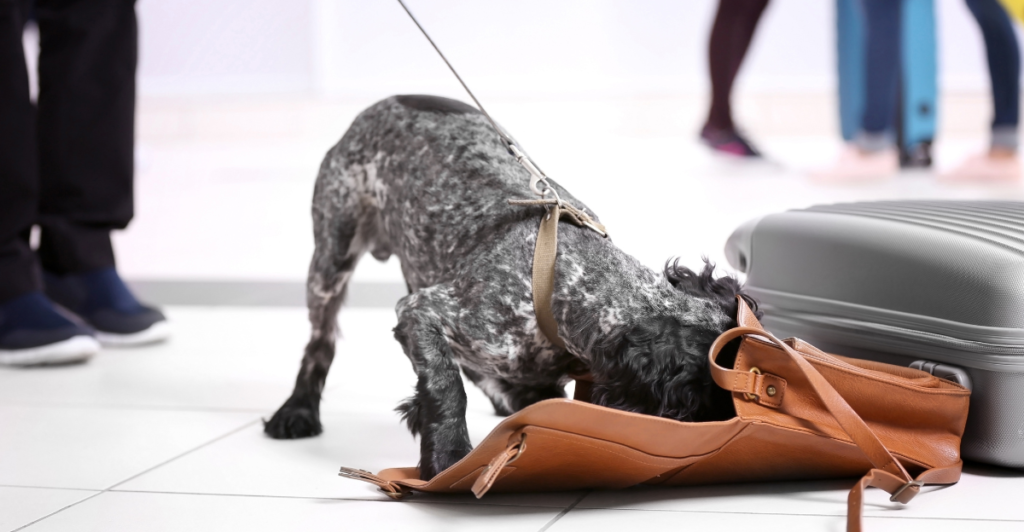
At airports, concerts, and government buildings, specially trained dogs sniff out explosives before disaster strikes. Their ability to detect even trace amounts of dangerous materials makes them invaluable for preventing terror attacks. Every day, these vigilant canines work behind the scenes to keep us safe.
10. Seizures Detection

Some dogs can sense a seizure before it happens, giving their owners a critical heads-up. They detect chemical changes in the body, allowing individuals to get to a safe place or take medication in time. For those living with epilepsy, these dogs are more than just pets—they’re lifesaving companions.
11. Diabetic Alert Dogs
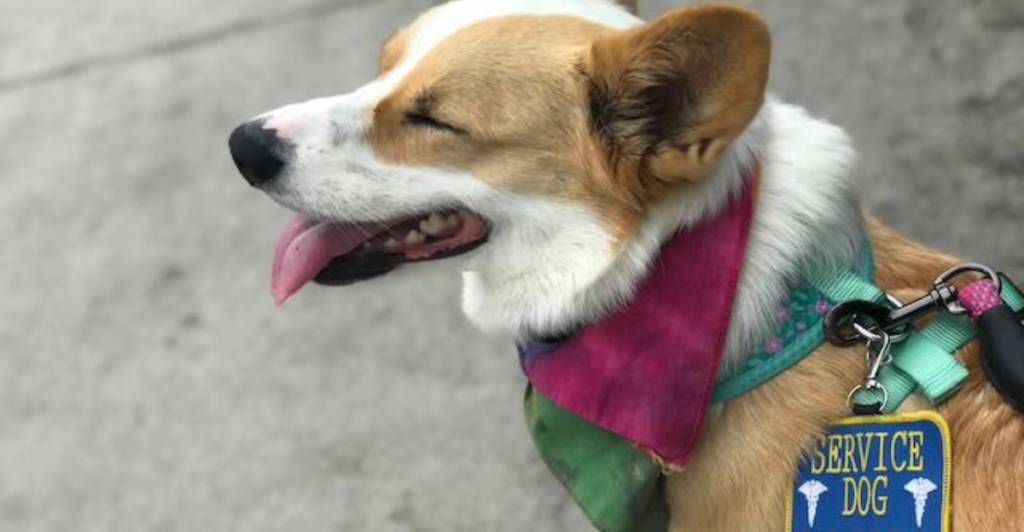
Dogs can detect shifts in blood sugar levels through scent, alerting people with diabetes before dangerous highs or lows occur. By picking up on changes in sweat or breath, they help prevent medical emergencies. Their ability to detect these invisible warning signs gives people with diabetes peace of mind—and could even save their lives.
12. Mold Detection

Hidden mold in homes can lead to serious health problems, but trained dogs can help. Mold-detection dogs use their sense of smell to find mold before it becomes a risk. Their accuracy allows homeowners to deal with mold issues early, which can prevent respiratory illnesses and costly repairs.
13. Environmental Monitoring
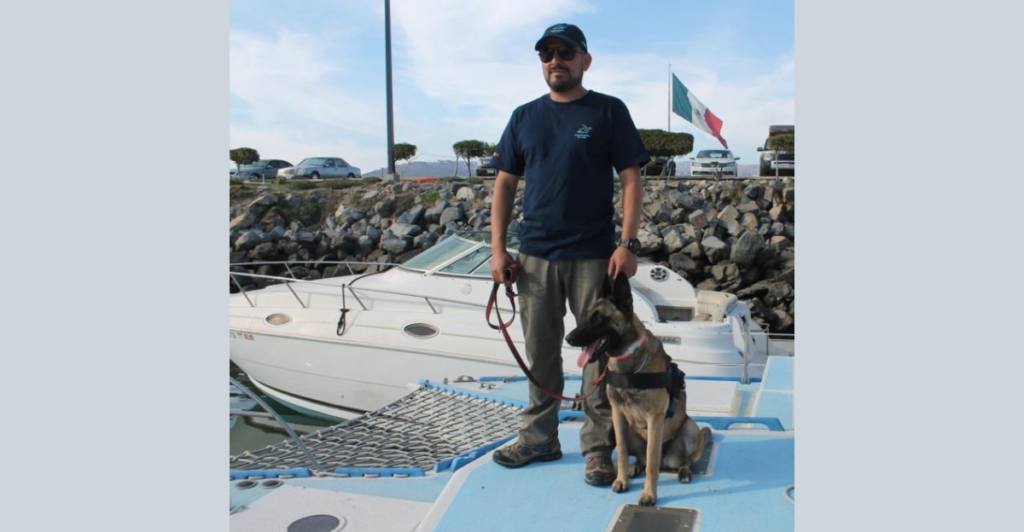
Dogs play a vital role in environmental protection by detecting harmful substances in our air, water, and soil! Their incredible sense of smell allows scientists to monitor pollution and swiftly identify oil spills. It’s truly amazing how these furry friends contribute to a healthier planet!
14. Pest Control in Agriculture
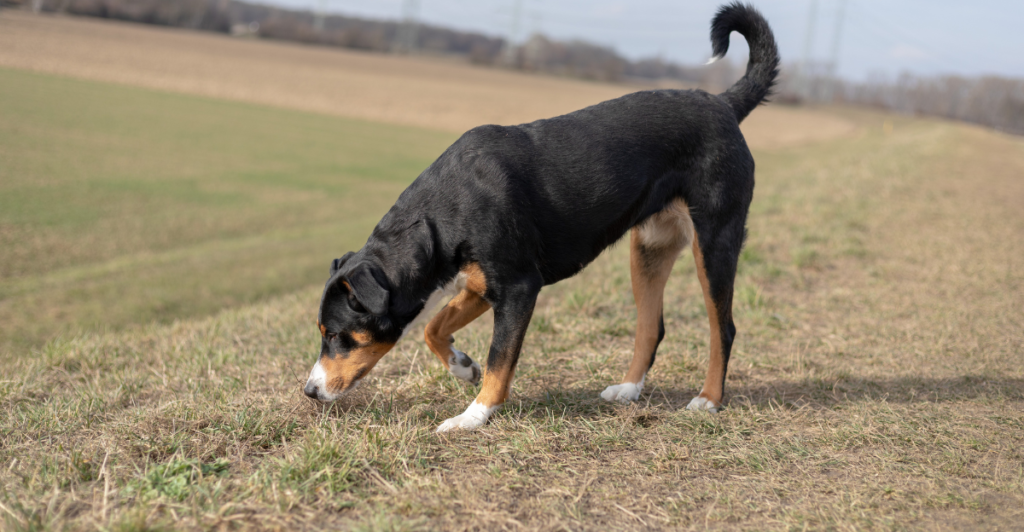
Farmers are using dogs to find pests that harm their crops, such as invasive insects and hidden rodents. By catching these problems early, these dogs help farmers lower the use of chemical pesticides, making farming more sustainable. With their keen sense of smell, these dogs are changing agriculture for the better.







